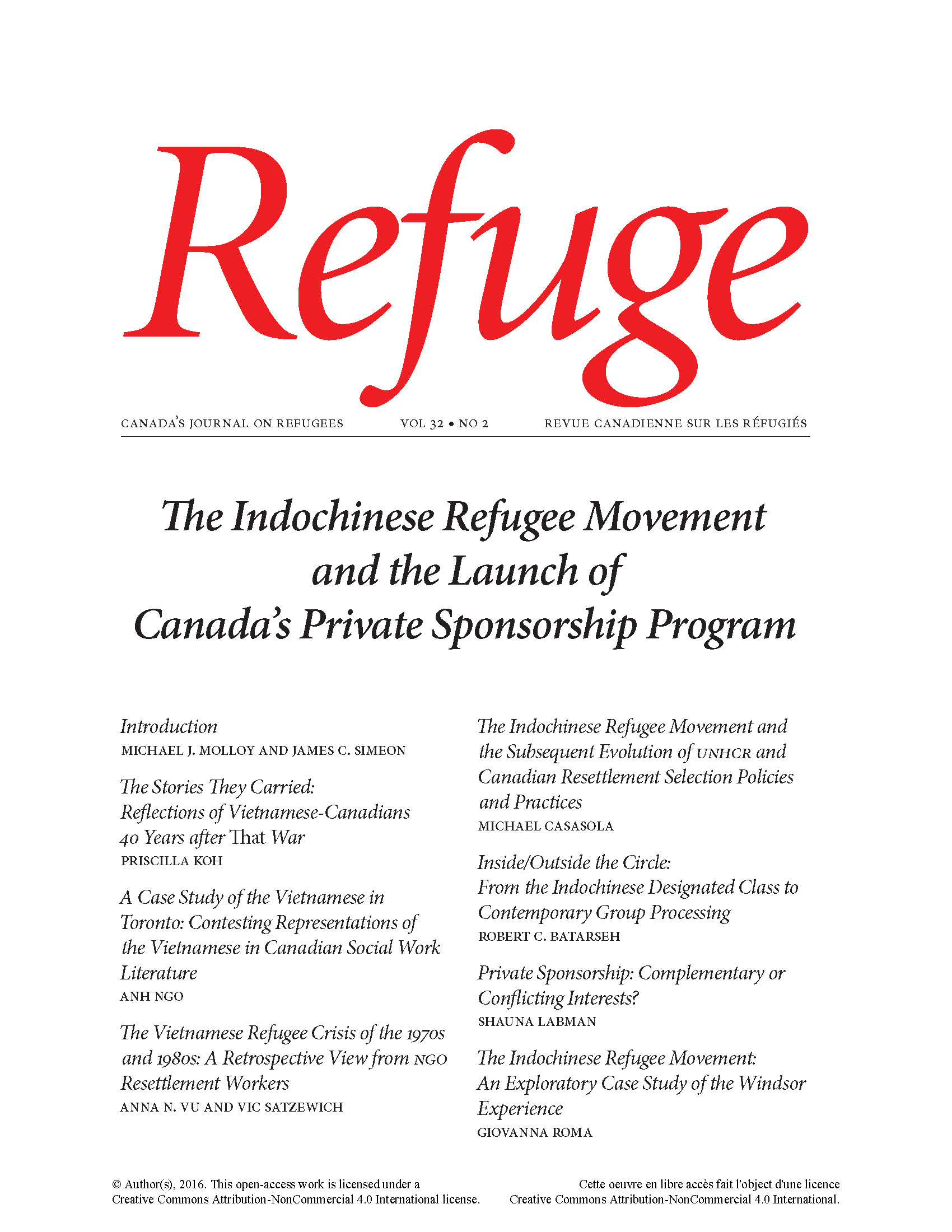Private Sponsorship: Complementary or Conflicting Interests?
DOI:
https://doi.org/10.25071/1920-7336.40266Keywords:
Canada, Indochinese refugees, Syrian refugees, resettlement, refugee policy, refugee law, additionality, private sponsorship, government sponsorshipAbstract
Canada’s Private Sponsorship of Refugees Program commenced before the Indochinese refugee flow began, and it has continued for almost 40 years since it subsided. Although conceived of as a complementary partnership, private sponsorship plays out more as a tug-of-war between the conflicting interests of government and sponsors over selection control and numbers. While guided by additionality, sponsors have been confronted with administrative and regulatory changes that challenge them to do more with less, and the fear that overall Canadian resettlement will reduce if their efforts are not expanded. A federal election and change of government in October 2015 may have reset government-sponsor relations but highlights the vulnerability and interpretative malleability of the program. With the pillars of the Indochinese and now Syrian resettlement efforts bookending the analysis, the article provides a historical and contextual understanding of recent changes to private sponsorship and the tensions and conflicting interests in maintaining a voluntary program premised on the resettlement of additional refugees.
Metrics
Downloads
Published
How to Cite
Issue
Section
License
Copyright (c) 2016 Shauna Labman

This work is licensed under a Creative Commons Attribution-NonCommercial 4.0 International License.
Refuge authors retain the copyright over their work, and license it to the general public under the Creative Commons Attribution-Non Commercial License International (CC BY-NC 4.0). This license allows for non-commercial use, reproduction and adaption of the material in any medium or format, with proper attribution. For general information on Creative Commons licences, visit the Creative Commons site. For the CC BY-NC 4.0 license, review the human readable summary.







